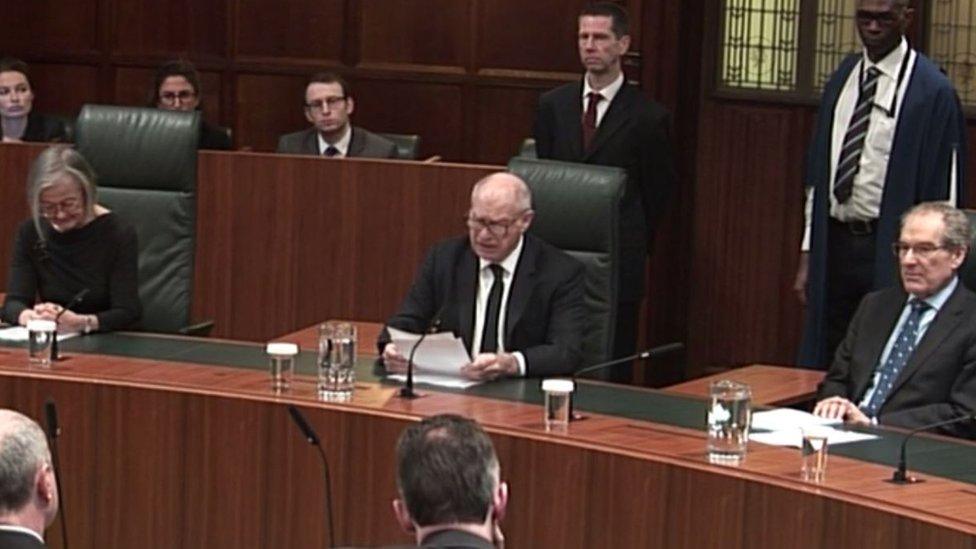May to 'intensify' UK-wide Brexit work
- Published
- comments
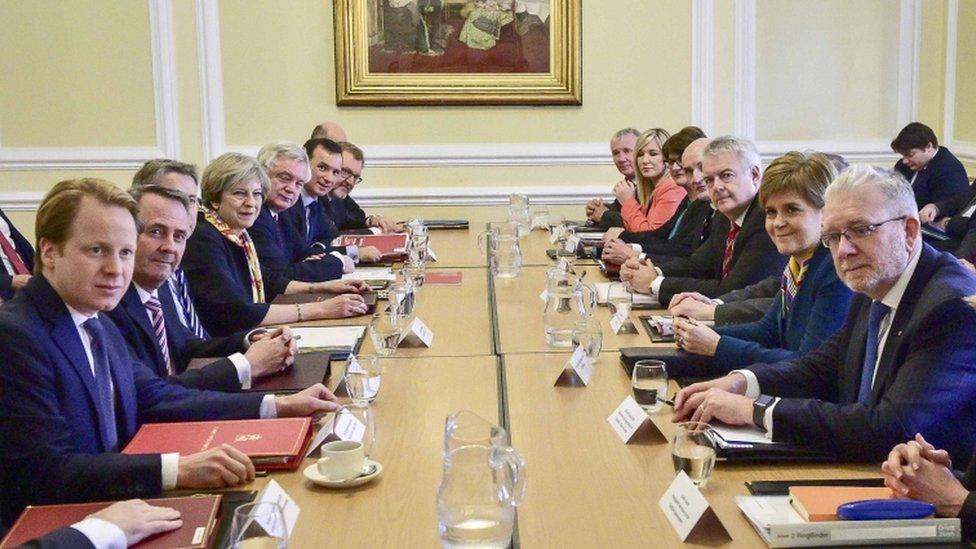
The JMC meeting was held at Cardiff City Hall
The prime minister has told the leaders of the devolved governments in Scotland, Wales and Northern Ireland that she will "intensify" work on their proposals for Brexit.
Theresa May was speaking during a meeting of the leaders in Cardiff.
The Scottish and Welsh governments have produced plans that would allow them to keep full access to the single market.
Scotland's first minister, Nicola Sturgeon, said time was "fast running out" for an agreement to be reached.
But the Welsh government said its differences with the UK government were "not irreconcilable".
Ahead of the Joint Ministerial Committee meeting, Mrs May had made it clear the devolved administrations would not be given a decisive role in the UK's divorce from the European Union.
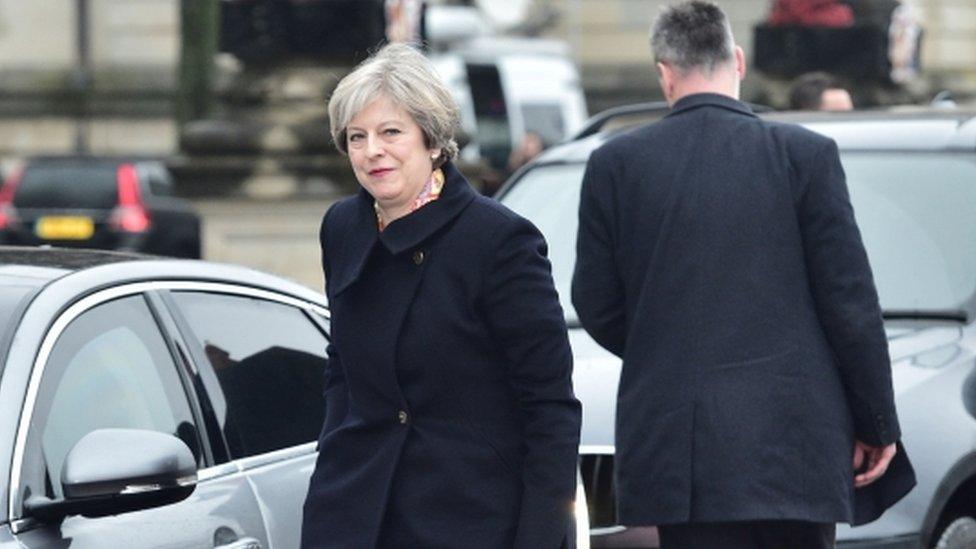
Theresa May attended the Joint Ministerial Committee meeting before travelling to Dublin for talks with Taoiseach Enda Kenny
Ms Sturgeon said after the meeting that she "remained to be convinced" that her government's proposals were being taken seriously, but welcomed the prime minister's commitment to intensify joint work on the Scottish government's proposals.
She also warned that she needed to see "tangible evidence" that UK ministers will take forward the proposals for a differentiated deal on European single market membership and a review of the devolution settlement.
Ms Sturgeon said: "The next few weeks are not going to resolve every issue of Brexit, but in terms of me being able to judge whether Scotland's voice is going to be heard at all in this process... the next few weeks are very important."
Independence referendum
Asked if such a timescale could see her announce a second independence referendum by March, she added: "I'll do what needs to be done to protect Scotland's position. We are running out of time for this process.
"It can't go on indefinitely and it won't go on indefinitely.
"This is one of the last key opportunities for me to make clear to the prime minister that I have to see some movement on her part, and over the next few weeks she has got the opportunity to demonstrate whether that movement is going to be forthcoming."
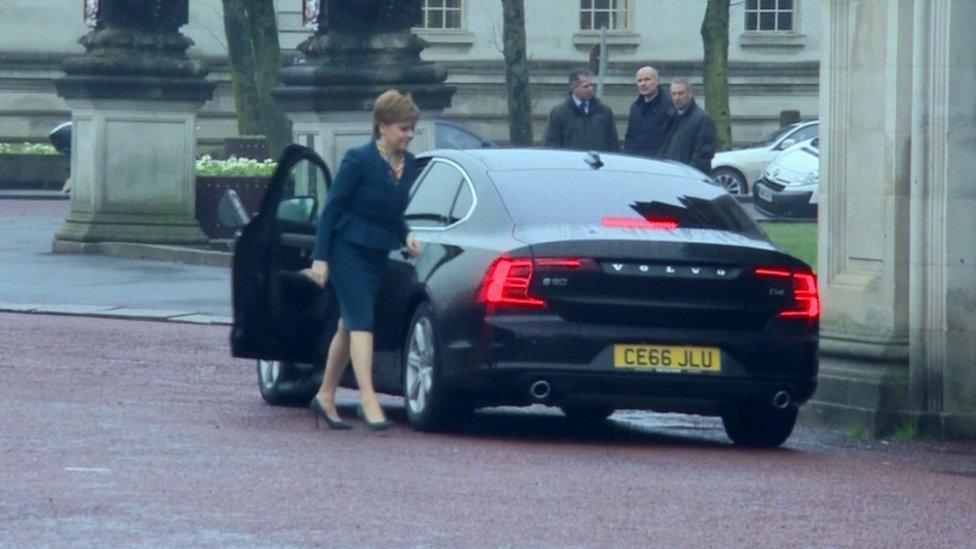
Nicola Sturgeon has accused the prime minister of not taking the Scottish government's position seriously
Monday's agenda included proposals for alternative settlements for the devolved administrations as well as ideas on helping British businesses to trade and invest in the run-up to Brexit.
Welsh First Minister Carwyn Jones called on Mrs May to uphold pledges made during the referendum campaign that Wales would not lose funding as a result of the UK leaving the EU.
Mr Jones spoke to the prime minister ahead of the main meeting, with the first minister raising his concerns about the UK's government's handling of Donald Trump's immigration order.
He also welcomed a "firm commitment" from the prime minister that Brexit would not be used as cover for a "land grab" on devolved powers.
There were also discussions about full single market access, and its importance to the Welsh economy.
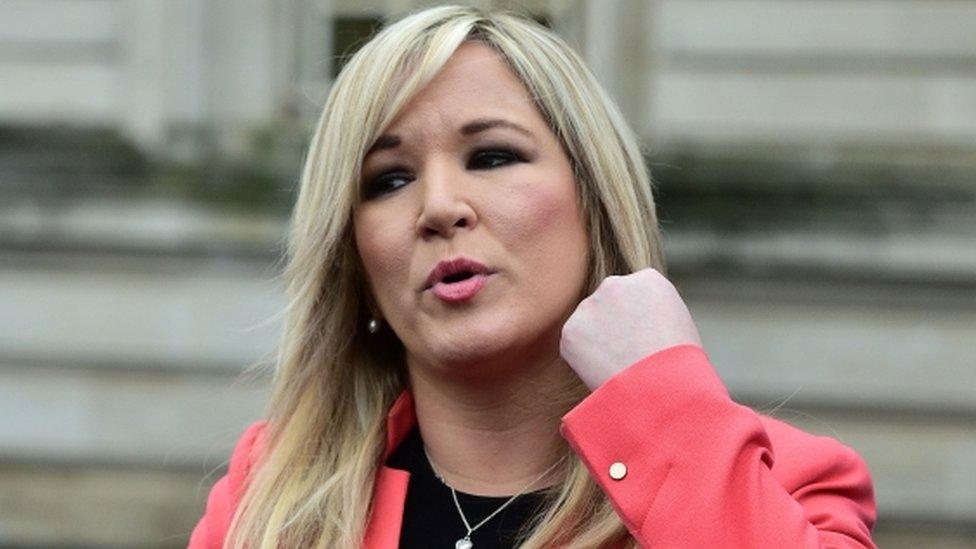
Sinn Fein's new leader, Michelle O"Neill, has called for Northern Ireland to be given a special status within the EU
A spokesman for the Welsh government said: "The positions are not identical, but not irreconcilable at this stage".
Democratic Unionist Party leader Arlene Foster, who was Northern Ireland's first minister until recently, was at the talks.
Also attending was Sinn Fein leader Michelle O'Neill, who urged the prime minister to "respect the vote of the people in the north and that we should be designated special status within the EU".
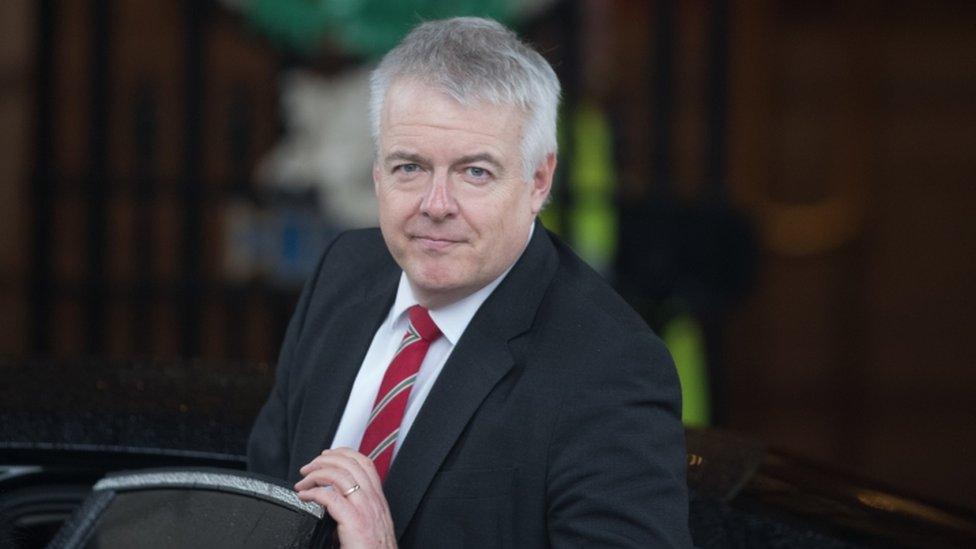
The Welsh government said the position of Carwyn Jones was "not irreconcilable" with that of the prime minister
The UK government's Scottish Secretary David Mundell later confirmed "inter-governmental discussions" on proposals brought forward by the devolved administrations would be intensified.
He said: "The question is not about can there be differentiation (for Scotland), the question is whether Scotland would benefit from differentiation, and that's what really has got to be at the heart of these intense discussions," he said.
"Is it necessary to have a separate deal for Scotland, is the wish for a separate deal for Scotland driven by ideology or is it really based on economic fact and Scotland's future needs?
"That is what we need to have a full and frank discussion about in the weeks ahead."
Mrs May later headed to Dublin for talks with Taoiseach (Irish Prime Minister) Enda Kenny.
Mr Kenny has called for the maintenance of the current "seamless border" between Ireland and Northern Ireland, after the UK leaves the EU, amid fears that a "hard Brexit" might reimpose controls on movement and trade.
- Published30 December 2020

- Published24 January 2017
